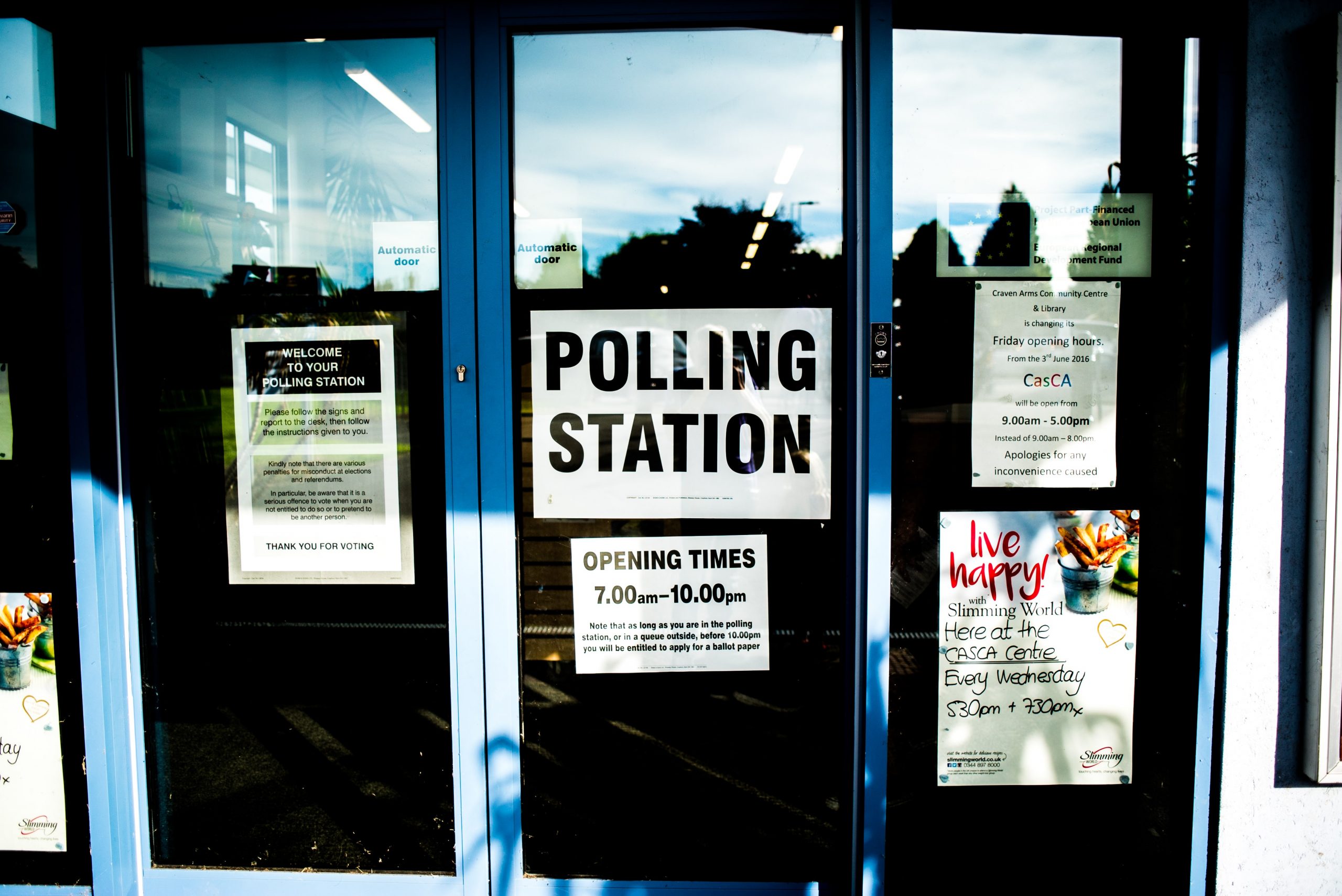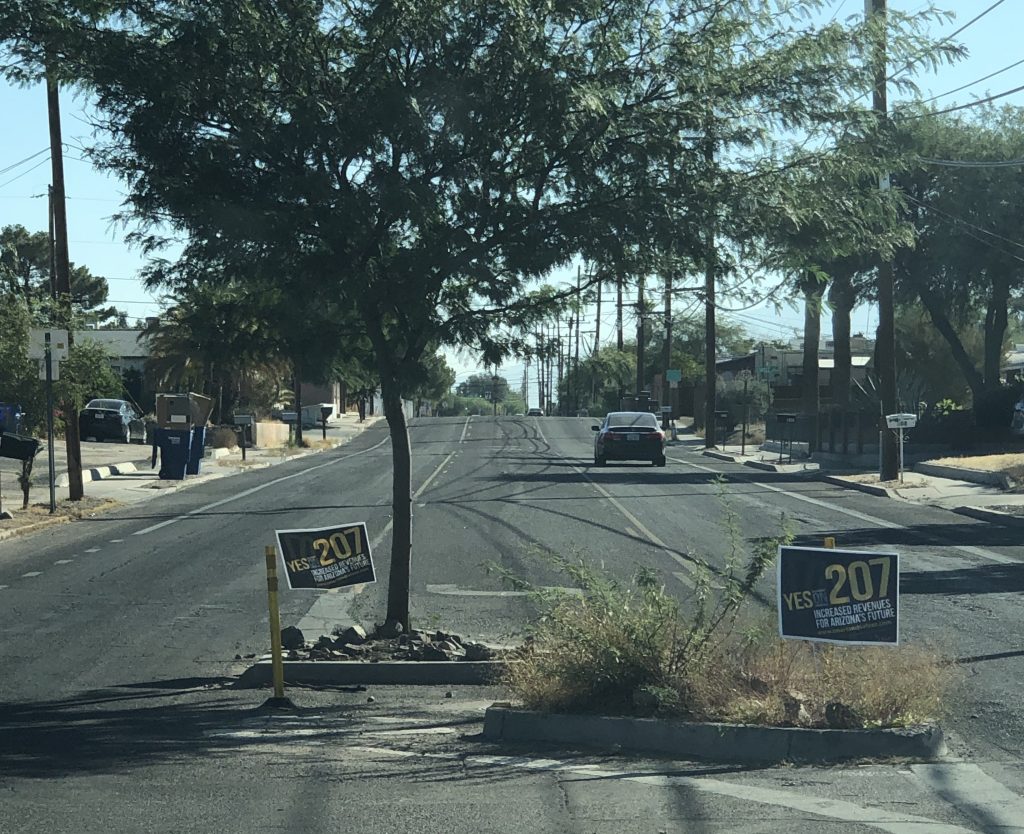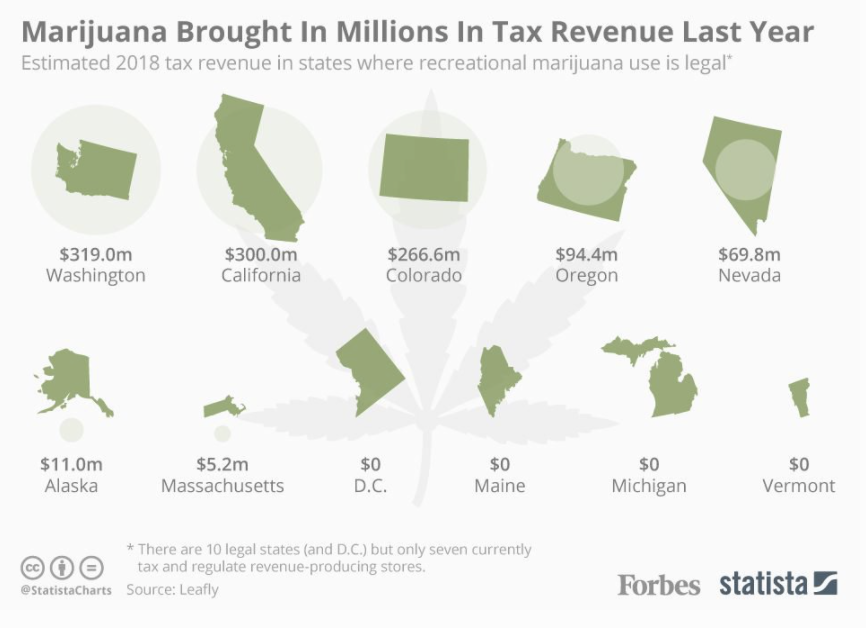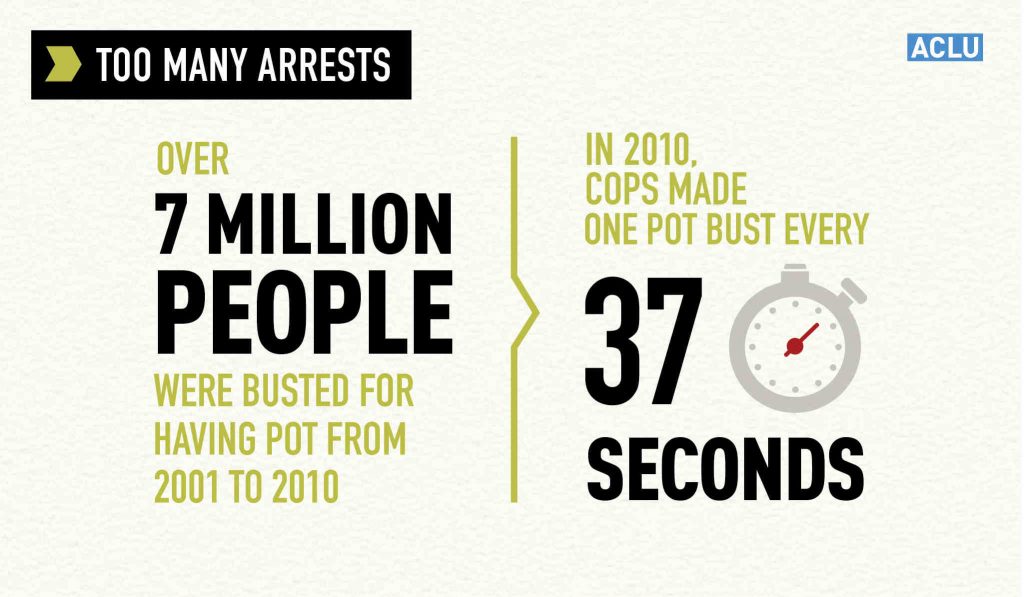
Two social justice initiatives are proposed in Proposition 207 to try and ameliorate some of the social inequities produced by disparate enforcement of already-harsh drug laws.
This November, Arizonans will have the opportunity to vote on two ballot initiatives. Proposition 207, also known as the Smart and Safe Arizona Act, is a voter-led initiative to make recreational adult use of cannabis legal across the state. It is also one of the most substantial criminal reform proposals in Arizona history. Proposition 208, the Invest in Education Act, is a component of the Invest in Education and #RedforEd campaigns spearheaded by public school teachers and families in 2017 and 2018. Lauded by progressives and Democrats but fought by conservatives and Republicans (including Governor Doug Ducey) these two contentious propositions offer opportunities to produce greater equity for middle class, low-income, and marginalized communities in Arizona. Prop 207, in particular, has been at the center of conversation among everyday Arizonans this election season.
2020 will not be the first year that Arizona voters will decide how they feel about cannabis use among its residents. Since 2010, Arizonans with qualifying illnesses and chronic medical conditions have been eligible to receive a medical marijuana-use license under the Arizona Medical Marijuana Act. Medical marijuana sales hit $336 million in Arizona in 2019, a positive boon for some public services which rely on tax revenue from these sales.
Back in 2016, Arizona voters were given the opportunity to vote for the passage of another recreational cannabis proposition but it failed at the ballot box. Despite cannabis use becoming normalized across the US, especially in the Western States, Arizona maintains some of the harshest marijuana possession penalties in the country; marijuana possession may lead to a felony arrest. As of 2019, certified medical marijuana patients gained long-awaited protections from drug possession charges in the State.
“The Poison is in the Dose”
Voters’ concerns about Prop 207 range from impacts on road and traffic safety to child developmental and moral health, and go so far as fears of a monopolized pot industry. The Smart and Safe Arizona campaign has received $1.425 million from Harvest Enterprises alone, which operates 210 medical marijuana dispensaries across nine states. With big names like this at the forefront of legalization efforts, Arizonans wonder whether or not there would be a pathway for them to create their own small marijuana business.
Arizonans concerned about the health and safety of recreational pot use should consider the statement of Dr. Steven Dudley, the current interim director of the Arizona Poison and Drug Information Center:
“One of the positives that could come out of this is we legalize marijuana is we legitimize taking revenue from legal vendors. There will [also] be pros from a therapeutic standpoint, as we’re in the middle of an opioid epidemic, and research has shown that cannabinoids can decrease opioid usage in individuals with chronic pain. However, as seen in other Western States, there is going to be an increase in unintentional pediatric exposures as more products are available in the home, and we know that there will be issues with overuse.”
Dr. Dudley understands that we are already seeing plenty of misinformation in favor and in opposition to recreational cannabis use.
“[As the Arizona Poison and Drug Information Center], our role is to help with all that; to monitor cannabis use, to be a source of information, to help provide patients with clinical management, and, ideally, to be more integrative with the dispensaries.”
Recreational Pot Could Mean Justice for Some but not All
After seeing the trials and successes in neighboring states like California and Colorado, Arizonans are curious to see how recreational adult use of cannabis may improve the state economy. Although California and Colorado earned $345 million and $302 million in 2019 in tax revenue, respectively, some Arizonans believe that future legislation and regulation around adult-use must go beyond economic considerations and carve a path towards dignity and justice for Arizonans who have been disproportionately criminalized for using, selling, or manufacturing cannabis products. If passed, the Smart and Safe Arizona Act will establish a fund through which tax revenue from recreational cannabis is distributed in various ways. 33% of tax revenue from recreational cannabis purchases to community colleges across the state, 31.4% to local law enforcement and fire departments, 25.4% to transportation programs, and 10% to public health and criminal justice interventions.
Like most industries in the United States, Arizona’s medical cannabis industry is owned and operated by mostly white, upper-middle class individuals. Poor, Black and Brown people are more often arrested and incarcerated for possession or distribution of marijuana, and are more likely to be missing from organizational charts of Arizona dispensaries. As of 2018, 62,000 people are being held in Arizona jails, prisons, and detention centers. Marijuana possession made up 43% of all drug arrests in 2018. In 2019, 870 Arizonans were incarcerated for marijuana-related offenses. Black Arizonans were three times more likely than white Arizonans to be arrested for marijuana possession. The year prior, Hispanic and Latinx people made up 32% of marijuana possession arrests and 60% of admissions to prison for this crime. Data also shows that Hispanic and Latinx communities are also disproportionately targeted for distribution related arrests and convictions.
Prop 207 Social Justice Initiatives
Two social justice initiatives are proposed in Proposition 207 to try and ameliorate some of the social inequities produced by disparate enforcement of already-harsh drug laws. The Social Equity Ownership Program would promote economic opportunities in the marijuana industry for community members who have been disproportionately impacted by enforcement of marijuana laws. Next, the Justice Reinvestment Fund uses marijuana revenue to advance restorative justice, jail diversion, workforce development (including through the Social Equity Ownership Program) and record expungement for individuals who have previously been arrested or incarcerated for a minor marijuana-related offense.

Current rules in the state require any individual applying for a dispensary license to maintain a total of $500,000 in liquid assets in any bank account for a minimum of six months prior to application and enter a lottery by which dispensary licenses will be distributed at random. This rule established in the Arizona Medical Marijuana Act has been significantly criticized for creating an economic standard of who can and cannot participate in the industry, prohibiting the average Arizonan from creating a small marijuana business. Presently, Section 26-2852 of the current draft of the Smart and Safe Arizona Act briefly introduces the Social Equity Ownership Program but a more detailed framework is forthcoming. If Prop 207 is passed, the Arizona Department of Health Services will have six months to initiate the Social Equity Ownership program and issue dispensary licenses specifically set aside by the Act.
Prop 207 Criminal Justice Proposals
Under the Act, starting July 12, 2021, individuals who were previously convicted for possession, use of, and or cultivation of small quantities of marijuana (one ounce or less of marijuana, nor more than five grams of which is in the form of marijuana concentrate) may petition to have their record expunged and rights restored. This is a significant change to Arizona’s current legal system; one of the remaining states to do so, Arizona does not offer the possibility of record expungement under any circumstance nor for any conviction. Yet still, many Arizonans will remain punished for marijuana offenses that surpass the “small quantity” limit.
It is not insignificant, however, that criminal justice reform advocates have proposed the strategy of evening the playing field of who can participate in this rapidly growing, formerly-illicit-now-acceptable industry in order to achieve greater economic equity. On the other hand, in a time where calls for defunding bloated local police budgets are growing louder and louder, people across Arizona question the integrity of these never-before-seen reforms. Prop 207 sets aside three-times the amount of tax revenue for local law enforcement and fire departments than the social justice initiatives described in the bill. People awaiting serious, structural changes ask: How can communities uphold equity and justice if we choose to put our resources into systems that continue to harm and disenfranchise our neighbors?
Two-thirds of Americans believe marijuana should be legal across the US. More states are moving towards medicalization, legalization and decriminalization of marijuana, causing the Federal government to feel greater pressure to change federal drug laws and offer dignity to individuals who have been harshly or wrongly penalized under our current legal system.
With the 2020 election only a couple weeks away political pundits are speculating if Arizona will go Blue or go Red in upcoming presidential and congressional elections. Arizonans, however, are anxious to see whether or not the Grand Canyon State will go Green this November.






